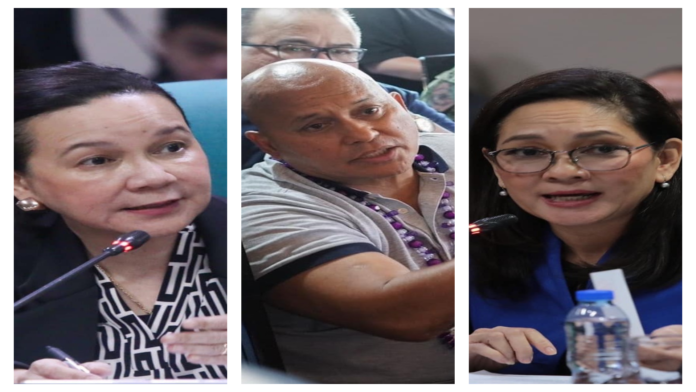More funding for the Department of Information and Communications Technology (DICT) would boost the government’s campaign against cybercrime, especially with the recent series of hacking on government websites.
In a statement Monday, Senator Grace Poe the hacking incidents should be stopped and the hackers should be held liable.
“Data breaches also jeopardize personal information of the people, whose own accounts may be subjected to hacking or unwanted exposures,” Poe said, noting that sensitive data could compromise national security.
“The government must invest in strong cyber security infrastructures to safeguard public records,” she added.
Senator Ronald Dela Rosa said he has been calling for the increase in the DICT’s 2024 proposed budget and even suggested that the agency be provided with intelligence funds.
“Ang hirap kasi it requires funding talaga and sa ngayon ay talagang nagsipabawasan ng pondo. Eh tingnan natin kung saan talaga dapat ang priority ng gobyerno. Kung less priority itong mga cyber-hacking, then hindi talaga ito mapaglalaanan ng pondo. Pero kung ito ay bigyan ng importance, ay dito dapat nakatutok ang pondo. So, it is a matter of prioritization (It’s hard because it really requires funding and there are a lot of budget cuts. Let’s see where government priorities should be. If cyber-hacking has less priority, then this will not be allotted funds. But if it is given importance, then the budget should focus on it. So, it is a matter of prioritization) of the government,” dela Rosa said during a virtual interview.
Probe sought
Deputy Minority Leader Risa Hontiveros recently filed Senate Resolution No. 829 to look into the series of hacking and data breach involving government agencies, sufficiency of prevailing cybersecurity measures, and government preparedness for cyberattacks.
Hontiveros cited in her resolution a report from the Philippine National Police Anti-Cybercrime Group that in the first quarter of this year alone, it received 16,297 reports of cybercrime cases.
“The breach of personal and sensitive information kept by government agencies endangers the safety and security of all Filipinos, leaving us even more vulnerable to increasingly nefarious schemes involving text message spams, online scams, phishing, financial fraud, extortion, black mail, and identity theft,” she said in her filed measure.
The series of hacking incidents started with the Philippine Health Insurance Corporation where the hackers gained access to its online systems and demanded USD300,000 in exchange for not leaking the personal data they have acquired.
The Philippine Statistics Authority has also announced that its Community-Based Monitoring System, which contained personal and sensitive personal information, was accessed by hackers.
On Sunday, the House of Representatives website was also compromised. (PNA)
Photo credit: Facebook/senateph


